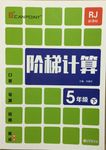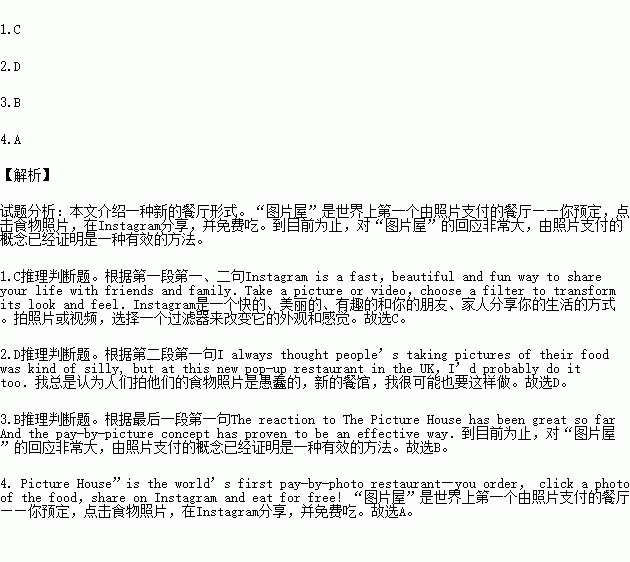ÌâÄ¿ÄÚÈÝ
Instagram is a fast£¬beautiful and fun way to share your life with friends and family£®Take a picture or video£¬choose a filter to transform its look and feel£®and then post to Instagram¡ªit's that easy£®You can even share to Facebook£®Twitter and more£®It¡¯s a new way to see the world£®So many photos of food are contained on Instagram¡ªnow a pop-up diner in London is taking advantage of this new trend by letting people settle the bill for their meals simply by uploading photos of their dishes to social networks£®
I always thought people¡¯s taking pictures of their food was kind of silly, but at this new pop-up restaurant in the UK£¬I¡¯d probably do it too£®¡°The Picture House¡±is the world¡¯s first pay-by-photo restaurant¡ªyou order£¬ click a photo of the food£¬share on Instagram and eat for free!
The restaurant belongs to frozen food giant(¾ÞÈË)Birds Eye£¬who came up with the idea to cash in on people¡¯s addiction with photographing food and sharing the pictures online. They conducted a survey and found out that more than half of the British population regularly took pictures of their meals£®So they realized it was a better way to advertise their new dining range£®
The pop-up diner was open in Soho£¬London for three days in May£¬and is now moving to other major UK cities£®They serve two-course meals that customers don¡¯t have to pay for, if they photo and lnstagram it£®
The restaurant is a part of Birds Eye¡¯s¡°Food for Life¡±campaign£¬a new marketing project that aims at changing the way people look at frozen food£®¡°Taking photos of food enables people to show off and to share their mealtime moments¡ªfrom the everyday to the special£¬¡±said marketing director Margaret Jobling£®
The reaction to The Picture House has been great so far And the pay-by-picture concept has proven to be an effective way£®Alternative payment methods are actually gaining popularity among a lot of businesses£®Last year in a cafe in Germany customers pay by how much time they spend there£¬not by what they eat£®
1.Instagram probably is______£®
A£®a restaurant free of chmge
B£®a campaign of¡°Food for Life¡¯¡¯
C£®a program used to share photos
D£®a new marketing project
2.What¡¯s the author¡¯s attitude to this new trend?
A£®Confused B£®Unconcerned
C£®Opposed D£®Interested
3.¡°The Picture House¡±encourages sharing photos of its food to_____£®
A£®raise the price of frozen food
B£®attract more customers
C£®create a new social media trend
D£®reward the regular customers
4.Which of the following can serve as the best title for the passage?
A£®Pay by Picture B£®The Pop-up Diner
C£®No Need to Pay D£®Food for Life
 ½×ÌݼÆËãϵÁдð°¸
½×ÌݼÆËãϵÁдð°¸
